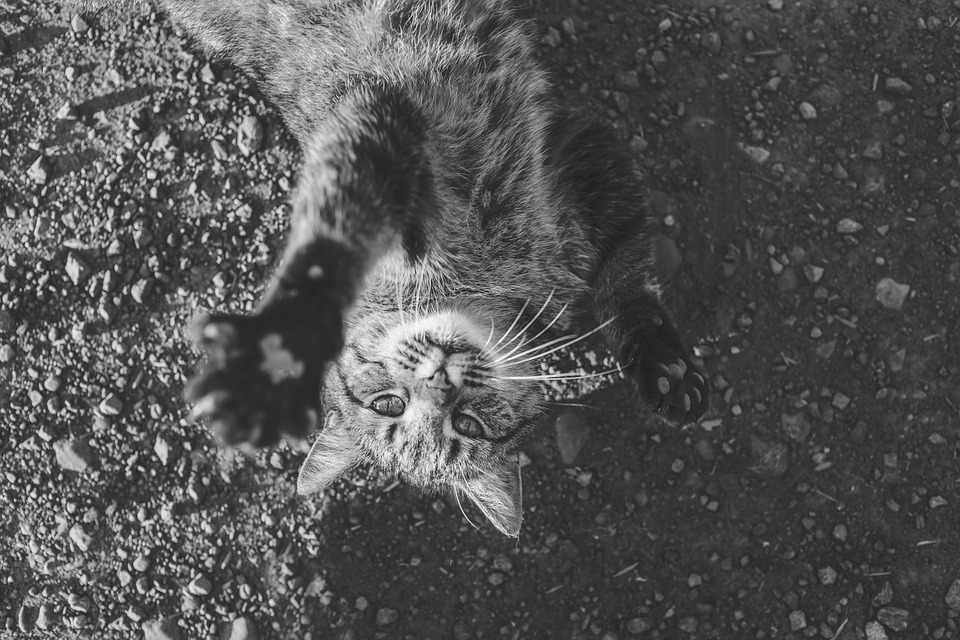This article explores the potential dangers of roses for our feline companions. We'll examine the specific compounds within the rose plant that can cause adverse reactions, discuss the various symptoms of rose poisoning in cats, and offer practical tips for keeping your cat safe. We'll also delve into the nuances of rose toxicity, considering different parts of the plant, severity of ingestion, and individual cat sensitivities. Finally, we'll address common questions and provide information on safe alternatives for those who wish to enjoy flowers while keeping their cats healthy.
Part 1: Unveiling the Toxicity of Roses

1.1 The Chemistry of Toxicity
- Roses contain various compounds that can be harmful to cats, including essential oils, tannins, and terpenes.
- These compounds are found throughout the plant, including the petals, leaves, stems, and thorns.
- The concentration of these compounds varies depending on the species and variety of rose, as well as the time of year.
1.2 The Role of Essential Oils
- Essential oils, responsible for the alluring fragrance of roses, can be irritating to cats' sensitive digestive systems.
- Ingesting these oils can lead to nausea, vomiting, and diarrhoea, especially in larger quantities.
- Certain essential oils, such as rose geranium oil, are known to be particularly toxic to cats.
1.3 Tannins and Their Impact
- Tannins are naturally occurring compounds found in roses and many other plants.
- In cats, tannins can cause digestive upset, including irritation of the mouth, stomach, and intestines.
- They may also interfere with nutrient absorption, leading to potential nutritional deficiencies.
1.4 The Role of Terpenes
- Terpenes are organic compounds that contribute to the distinctive aroma and flavour of roses.
- While some terpenes have medicinal properties, they can also be toxic to cats in high doses.
- Exposure to terpenes can trigger allergic reactions in sensitive cats, leading to skin irritation, respiratory distress, or even anaphylaxis in severe cases.
Part 2: Recognising the Signs of Rose Poisoning

2.1 Common Symptoms of Mild Toxicity
- Vomiting: This is often the first sign of rose ingestion, as the cat's body tries to expel the toxic substances.
- Diarrhoea: Loose stools or increased bowel movements may occur due to irritation of the digestive tract.
- Loss of Appetite: Cats may become disinterested in food due to nausea or discomfort.
- Lethargy: Reduced energy levels and sleepiness are common signs of illness.
- Drooling: Excessive salivation can indicate irritation of the mouth or throat.
- Skin Irritation: Cats may experience itching, redness, or swelling if they come into contact with thorns or sap.
2.2 Signs of Severe Toxicity
- Difficulty Breathing: Respiratory distress may occur if the cat has inhaled rose pollen or if the toxicity affects the lungs.
- Tremors: Muscle tremors or spasms can be a sign of nervous system involvement.
- Coma: In rare cases, severe rose poisoning can lead to a state of unconsciousness.
- Seizures: Although uncommon, seizures can occur in extremely severe cases of poisoning.
Part 3: Navigating the Different Levels of Risk

3.1 Severity of Ingestion
- The amount of rose ingested significantly affects the severity of symptoms.
- A few nibbled petals might only cause mild digestive upset, while consuming a large portion of the plant could lead to more severe reactions.
- The type of rose, its age, and growth conditions also influence toxicity levels.
3.2 Individual Cat Sensitivities
- Cats vary in their susceptibility to rose toxicity.
- Some cats may experience only mild reactions, while others may be highly sensitive and suffer severe consequences.
- Younger kittens, older cats, and those with pre-existing health conditions may be more vulnerable to poisoning.
3.3 The Role of Thorns
- Thorns can pose a direct threat to cats, causing punctures, scratches, and even infections.
- While thorns are not poisonous, they can cause pain and discomfort, requiring veterinary attention.
- Thorns can also introduce bacteria into the bloodstream, leading to serious complications.
Part 4: Protecting Your Cat From Rose-Related Harm
4.1 Keeping Roses Out of Reach
- Restrict access to roses by keeping them in a designated area, preferably outdoors.
- Use fencing, barriers, or cat-proof enclosures to create safe zones.
- Supervise your cat closely when it is near roses, especially during playtime or when you are not home.
4.2 Choosing Safe Alternatives
- Opt for cat-friendly plants instead of roses, such as catnip, cat grass, lavender, rosemary, and spider plants.
- These plants offer a safe and enjoyable alternative for your cat's chewing and exploring instincts.
Part 5: Acting Quickly in an Emergency
5.1 Initial Steps
- If you witness your cat eating a rose, try to remove any visible pieces from its mouth and fur.
- Observe your cat closely for any signs of poisoning, such as vomiting, diarrhoea, or lethargy.
- Even if your cat appears to be fine, it's essential to contact your veterinarian immediately.
5.2 Veterinary Guidance
- Your veterinarian will assess your cat's condition and provide appropriate advice.
- They may recommend inducing vomiting, administering activated charcoal, or providing supportive care.
- Follow their instructions carefully and avoid giving your cat any medications without their approval.
Part 6: FAQs
6.1 Can dried roses be toxic to cats?
- While dried roses pose less risk than fresh ones, they still contain toxic compounds that can cause harm.
- It's best to keep dried roses out of your cat's reach, especially if they are known to be nibblers.
6.2 Are rose petals safe for cats?
- Rose petals are generally considered less toxic than other parts of the plant, but they can still cause digestive upset.
- It's best to avoid feeding rose petals to your cat, as even small amounts can trigger adverse reactions.
6.3 What if my cat has been around roses but hasn't eaten any?
- If your cat has only been exposed to roses without ingesting them, it's unlikely to be affected.
- However, monitor them for any signs of irritation, such as sneezing, coughing, or skin problems.
6.4 Can I give my cat rose water?
- Rose water is generally considered safe for cats in small amounts, but it's best to avoid excessive exposure.
- Dilute a few drops of rose water in your cat's drinking water for occasional use.
6.5 Are rose thorns poisonous?
- Rose thorns are not poisonous, but they can cause punctures, scratches, and infections.
- If your cat gets pricked by a rose thorn, clean the wound thoroughly and seek veterinary attention if necessary.
Remember, if you suspect your cat has ingested a rose or shows any signs of poisoning, contact your veterinarian immediately. Early intervention is crucial for preventing complications and ensuring your feline friend's well-being.
Everyone is watching
-

Are Cat Ribs Flexible? Understanding Their Anatomy
CATS & KITTENSThis article delves into the fascinating world of feline anatomy, exploring the flexibility of cat ribs and ho...
-

Can Cats Eat Bananas? (Everything You Need to Know)
CATS & KITTENSThis article dives into the intriguing question of whether cats can safely enjoy the sweet, yellow fruit, bana...
-

Cat Lifespan: How Long Do Cats Live?
CATS & KITTENSThis comprehensive guide explores the factors influencing the lifespan of our feline companions, providing ins...
-

Can Cats Get COVID-19? What You Need to Know
CATS & KITTENSThis article will delve into the fascinating world of feline COVID-19 susceptibility. We'll explore whether ca...
-

Can Cats Eat Eggs? A Complete Guide to Egg Safety for Your Feline Friend
CATS & KITTENSWhen it comes to treating our furry companions, we all want to ensure we're doing what's best for them. Eggs...
